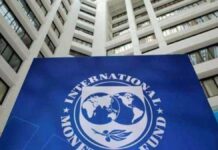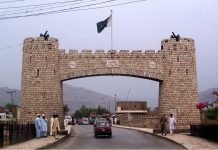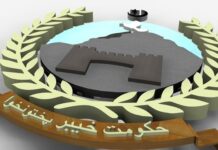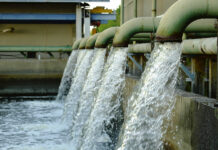
PESHAWAR: The Khyber Pakhtunkhwa (KP) government on Monday unveiled the draft of the KP industrial policy that aims to empower the province through balanced and sustainable industrial growth by capitalising on the indigenous endowment, leading towards equitable distribution of socio-economic dividends, job creation and inclusive economic growth.
The government called on all stakeholders to invest in KP for the development of industries and to take full advantage of investment opportunities in the context of China-Pakistan Economic Corridor (CPEC).
In the new policy, the stakeholders would be provided with facilities through one window operation.
The industrial policy draft was presented and discussed with the stakeholders to include their recommendations at a workshop. KP Finance Minister Taimur Salim Jhagra, Chief Advisor to the Industries Minister Abdul Karim Khan and traders of the province participated.
The sessions of the workshop were attended by the representatives of financial institutions, business community, academicians and members of the Sarhad Chamber of Commerce and Industry (SCCI).
KP Board of Investment Chief Executive Officer (CEO) Ihsan Dad Butt gave a detailed presentation to the participants and highlighted the steps taken by the new industrial policy to promote trade and commerce throughout the province.
He said that the new policy, which had targeted the Gross Domestic Product (GDP) growth from 3.5 per cent to 16 per cent, would facilitate the investors with land procurement, improved communication systems and skilled labour.
The policy also included rehabilitation of 25pc sick industrial units, he added.
“KP has a geographical significant from where trade can be extended easily to the Central Asian countries. The province is investing in natural resources as well as tourism, agriculture, engineering, cement industry, minerals and other sectors,” KP Finance Minister Taimur Saleem Jhagra said while speaking on the occasion.
He said that investment was also being focused in newly integrated districts, and plans were being initiated with the stakeholders to bring economic stability to the people of tribal districts.
Appreciating the US-Taliban agreement in Doha, Jhagra said it would have a very positive impact on trade and uplift of the entire region.
He said that for the first time the Pakistan Tehreek-e-Insaf (PTI) government had opened the Torkham Border round the clock to facilitate and enhance trade activities in the region, adding efforts would be made to keep it open 24 hours.
Adding his comments, KP Chief Minister’s Adviser on Industry Abdul Karim Khan said that the present government had a clear vision to develop the industries in the province.
“We will launch business models in all districts, starting from newly merged tribal districts to create favorable investment opportunities,” the adviser said and added that licences had been issued to eight cement industries, which would soon start work.
Former Sarhad Chamber of Commerce president Zahid Shinwari suggested the KP government to incorporate the opinions of industrialists in the new industrial policy.
“The policies made for European industries cannot be implemented in KP, so the industrial policy should be devised according to the environment of our province,” Shinwari said.
He asked the government that the new policy should not only be limited to Chinese investors, as people from other parts of the world as wells as local investors also wanted to invest in KP.






















